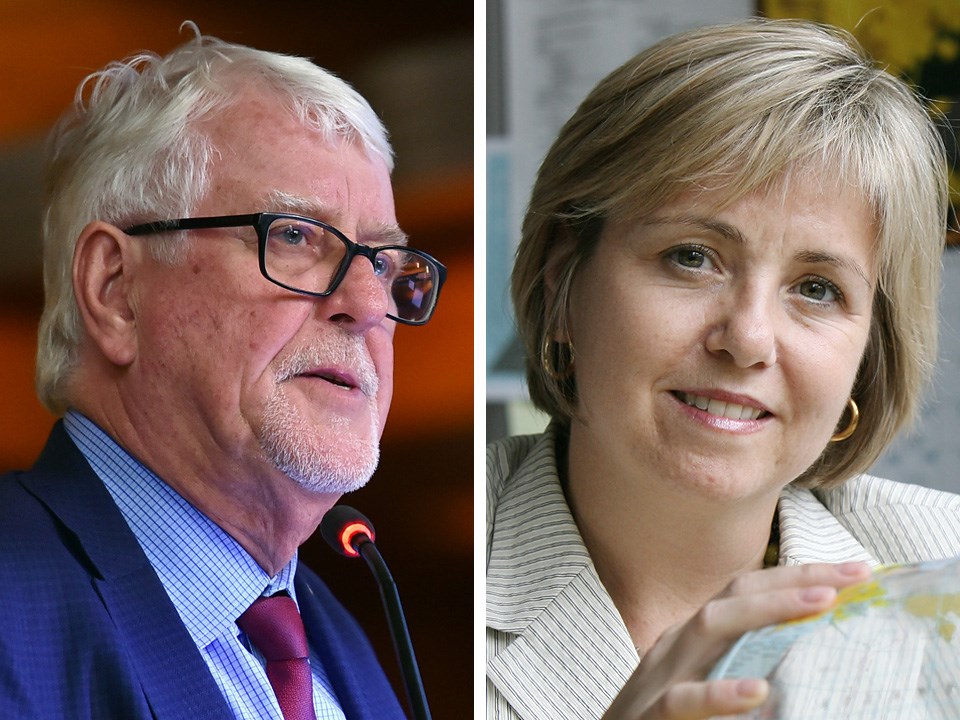Provincial health officer Dr. Perry Kendall announced Wednesday that he will retire Jan. 31 and be replaced by deputy provincial health officer Dr. Bonnie Henry, who becomes the first woman in the role to oversee B.C.’s serious public health challenges.
Kendall, 74, leaves his post at a time when British Columbia is still mired in an opioid crisis, but his successor told reporters from the parliament buildings in Victoria that reducing overdose deaths will continue to be a focus under her leadership.
“Absolutely, we need to continue doing the work to protect people from dying from the overdose crisis — that’s one of the major issues,” said Henry, who has been deputy provincial health officer since August 2014 and acknowledged she had "very big shoes to fill" in replacing Kendall. "There’s always a number of public health issues that are going on, some more in front than others, so yes that would be one of them.”
Henry said the province still has work to do related to the legalization of cannabis “and how to best protect public health from that,” improving drinking water and responding to communicable diseases, noting “we’re in the middle of quite a bad influenza season right now.”
Kendall has been the province’s health officer since 1999 and was “prolific in writing reports on Indigenous health, drinking water and other public health issues, and managed a wide variety of concerns that included advising on the Ebola outbreak, radiation from Fukushima, SARS and swine flu,” according to a news release that accompanied his announcement.
Kendall’s comments at the news conference were brief, describing the job as rewarding and a privilege to serve British Columbians. He noted he’s worked with and reported to several health ministers, including current minister Adrian Dix, who praised Kendall for his “legendary” commitment to the role as health officer.
“While they may not always have agreed with or appreciated my analysis or my recommendations, they did respect the independence of the office and gave my recommendations due consideration — some of them were even implemented,” said Kendall, before thanking media for highlighting public health emergencies. “I’ve also been aided by a media presence — this is my shout-out — who were interested, fair and adverse to fake news. So I would like to thank you, or them, for their role in informing the public during the not-infrequent emergencies and crisis that face the province.”
Kendall also thanked his public health colleagues and said he was pleased to be “passing the torch” to Henry, “who I know will uphold the traditions and standards of the office.” The news conference ended abruptly for reporters listening via teleconference — because of technical difficulties — before Kendall could answer questions.
Kendall has been a frequent visitor to Vancouver city hall, where he and Dr. Patricia Daly, the chief medical health officer for Vancouver Coastal Health, have updated city council on the opioid crisis.
Both he and Daly have been strong proponents for the decriminalization of drugs and for governments to spend money on more treatment and drug therapy options for drug users.
In a visit to council in April 2017, Kendall pointed to the example of Portugal, which decriminalized drugs in 2001. He acknowledged such a move would result in “difficult discussions,” but noted law enforcement officials on a provincial task force agreed the solution to reduce overdose deaths is not by arresting drug users. Same goes for treatment as the only solution, he added.
“Although I think there’s a lot of opportunity for treatment, I think we’re unlikely to treat our way out of this,” Kendall said. “So I think it is time for a discussion to look at other alternate regimes that might offer Canada better options than we currently have.”
Henry said she is “a strong believer that we need to decriminalize people who use drugs, and to focus on helping them wherever they are in their journey, in terms of their use and their recovery.”



